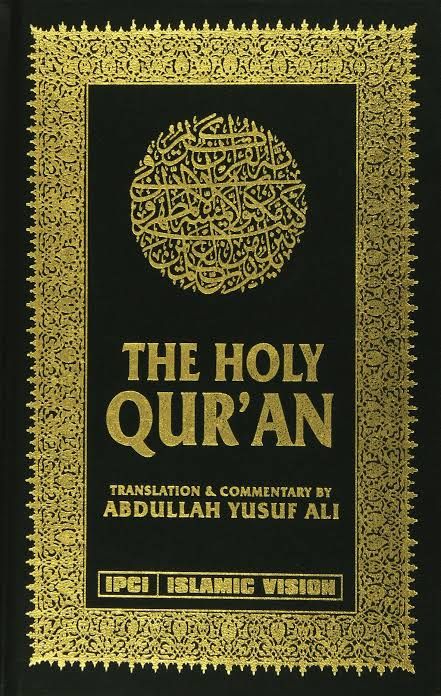
Muslims believe that the Quran was orally revealed by God to the final prophet, Muhammad, through the archangel Gabriel (Jibril),[16][17] incrementally over a period of some 23 years, beginning in the month of Ramadan,[18] when Muhammad was 40; and concluding in 632, the year of his death.[11][19][20] Muslims regard the Quran as Muhammad's most important miracle; a proof of his prophethood;[21] and the culmination of a series of divine messages starting with those revealed to Adam, including the Tawrah (Torah), the Zabur (Psalms) and the Injil (Gospel). The word Quran occurs some 70 times in the text itself, and other names and words are also said to refer to the Quran.[22]
The Quran is thought by Muslims to be not simply divinely inspired, but the literal word of God.[23] Muhammad did not write it as he did not know how to write. According to tradition, several of Muhammad's companions served as scribes, recording the revelations.[24] Shortly after the prophet's death, the Quran was compiled by the companions, who had written down or memorized parts of it.[25] Caliph Uthman established a standard version, now known as the Uthmanic codex, which is generally considered the archetype of the Quran known today. There are, however, variant readings, with mostly minor differences in meaning.[24]
The Quran assumes familiarity with major narratives recounted in the Biblical and apocryphal scriptures. It summarizes some, dwells at length on others and, in some cases, presents alternative accounts and interpretations of events.[26][27] The Quran describes itself as a book of guidance for mankind (2:185). It sometimes offers detailed accounts of specific historical events, and it often emphasizes the moral significance of an event over its narrative sequence.[28] Supplementing the Quran with explanations for some cryptic Quranic narratives, and rulings that also provide the basis for sharia (Islamic law) in most denominations of Islam,[29][vi] are hadiths—oral and written traditions believed to describe words and actions of Muhammad.[vii][29] During prayers, the Quran is recited only in Arabic.[30]
Someone who has memorized the entire Quran is called a hafiz (memorizer). An ayah (Quranic verse) is sometimes recited with a special kind of elocution reserved for this purpose, called tajwid. During the month of Ramadan, Muslims typically complete the recitation of the whole Quran during tarawih prayers. In order to extrapolate the meaning of a particular Quranic verse, Muslims rely on exegesis, or tafsir (commentary) rather than a direct translation of the text.[31]
Congratulations! This post has been upvoted by the @blurtcurator communal account,
You can request a vote every 12 hours from the #getupvote channel in the official Blurt Discord.Don't wait to join ,lots of good stuff happening there.
Thank you for using my upvote tool 🙂

Your post has been upvoted (2.12 %)
Delegate more BP for better support and daily BLURT reward 😉
@tomoyan
https://blurtblock.herokuapp.com/blurt/upvote